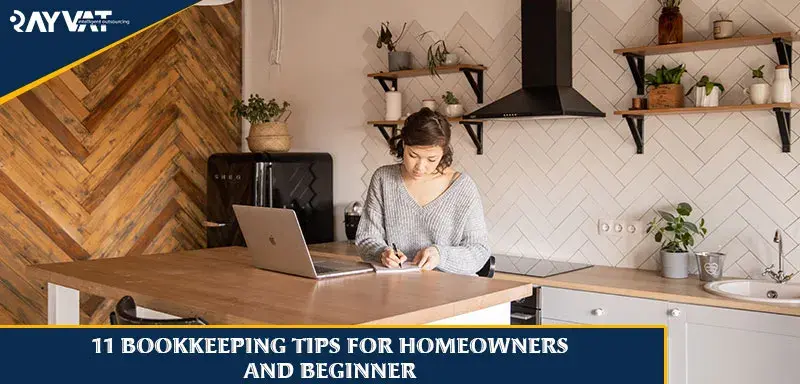1. Know The Basics Of Accounting And Bookkeeping
Unless You Have The Funds To Hire A Professional Accountant, You Know The Basics Of Bookkeeping And How To Keep Books compatible. This will save you a lot of money that you will spend on hiring a professional accountant. There are online bookkeeping services that will help you get a startup business.
Go back to the basics of accounting and familiarize yourself with accounting procedures, even if you don’t intend to be an accountant. Maybe you've delegated the task of bookkeeping to an employee or your business partner, but that doesn't mean the basics will always be covered. As an entrepreneur, it is your job to know everything about your business.
2. Keep the Separation
Most small business owners make a big mistake: They don't separate their business transactions from personal transactions. Imagine that you have only one bank account for business and personal expenses, you will start to spend personal expenses with money intended for business. Have a separate bank account for your business and another for your personal use. In addition, you must separate your personal expenses from your business expenses.
3. Keep It Simple
If you can't understand the details of each of your books at a glance, that means you're not keeping it simple. Have a separate book for your expenses, income, debts, and more; So as not to confuse you.
You should try to keep your records as easily as possible. The first few years of your business should serve as a learning process and you should develop your accounting methods slowly. Getting into complicated things can be disastrous at times, and diving into something you don't really understand is just overwhelming.
4. Consider Every Detail
There are a few small expenses that we tend to overlook which, in the end, are a problem for us. Expenses you have incurred or have incurred with the services of a worker. The little inducements you give to your employee should all be recorded in your books because whether you factor them in or not, they're part of your credit entry or expense.
5. Get Started Online
I mentioned above that there is accounting software that will help you make your bookkeeping task easier and less boring. Here are some examples of best accounting softwares that you can use for your business: Kashoo, Invocera, Xero, and Quickbooks Online. You can also opt for cloud storage of your data to help you access it whenever you want and avoid data loss as paperless accounting is now the main thing.
6. Periodic Review
Always set aside the time needed to balance and reconcile your online and offline books. It can be weekly or monthly; depending on what works for you. This way, you'll stay ahead of your finances and know when your business starts to fail. You should always take note of your monthly and even daily account balance. If someone is doing it for you, which is necessary, always take the time to check back every now and then and make sure it's done right.
7. Review your tax returns
As a business owner, you have to pay certain taxes and you have to pay them when you need them. Always involve paying your taxes in your expenses to avoid the accumulation of penalties. It is a form of avoidable debt that you can avoid.
8. Monitor your spending to check for unwanted spending
Some expenses that you do every now and then are not. contribute to the positive growth of businesses. These are expenses that your business makes and does without. Go over your books, find these expenses, and find a way to eliminate them.
Budgeting and sticking to it will always help you keep expenses down and see actual results mirroring those planned. This will surely help you to direct your expenses and maintain your profits.
9. Keep Track of Your Debtors
Business credit selling is inevitable, always keep track of your debtors. If possible, open a debtor account ledger to keep track of it and send them reminders every now and then to remind them to pay as much as you want for the money needed to run your business.
10. Use the services of a professional
as I mentioned that it is cheaper to keep your books of account, but if at any time you get lost a bit, do not hesitate to seek advice or the services of a professional accountant. In addition, your business begins to grow and develop; the services of a professional accountant can become unavoidable. Find an accountant who will work with you. When in doubt, it is essential to invite or hire an accountant who will work with you and who will also help you achieve all of your financial goals.
11. Apply two methods:
electronic and paper accounting may seem pointless, but believe it, it is well worth it. For many, electronic accounting easily confuses the jumble of unbalanced numbers that make no sense. Keeping paper records is always more complex, and in most cases, it's easier to find out where you went wrong. Be sure to keep hard copies of important documents in case of an emergency if you prefer to work on computers.
Conclusion
it is important to know that no business can be successful without proper accounting and financial documentation. So the sooner you start to set up an accounting process for your business, the better it will be for you and your business.
Contact us today for more details and a specific quote.


